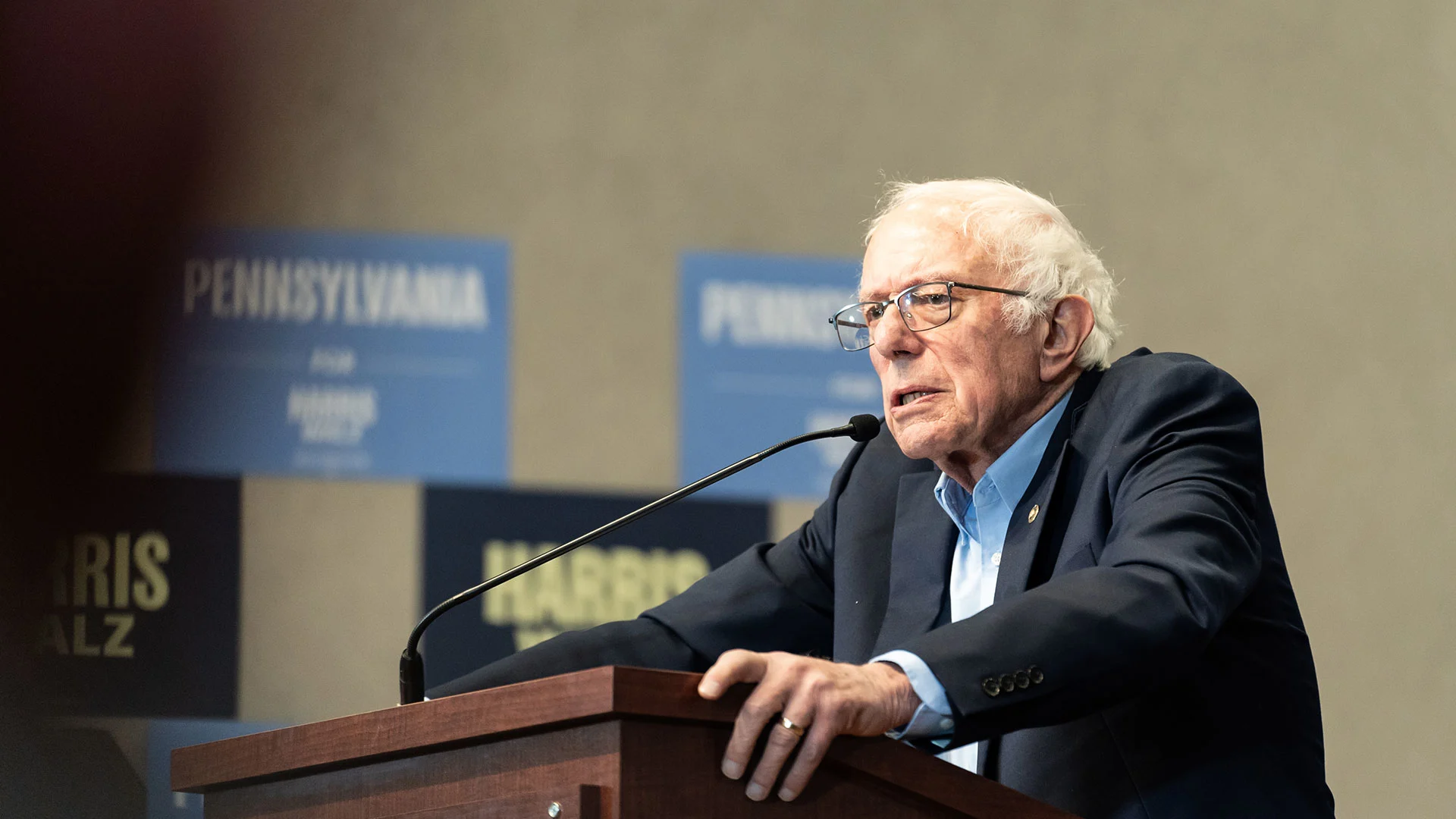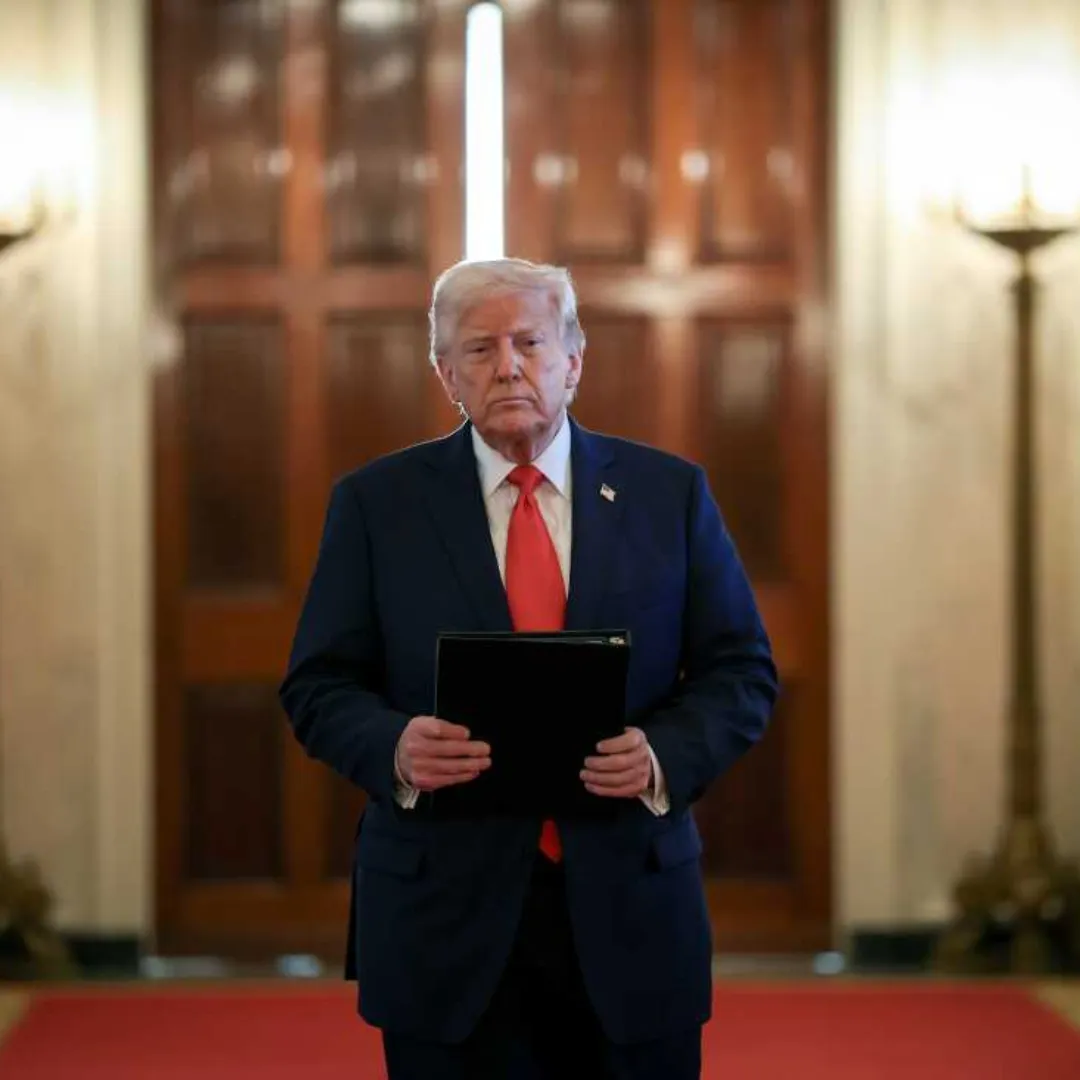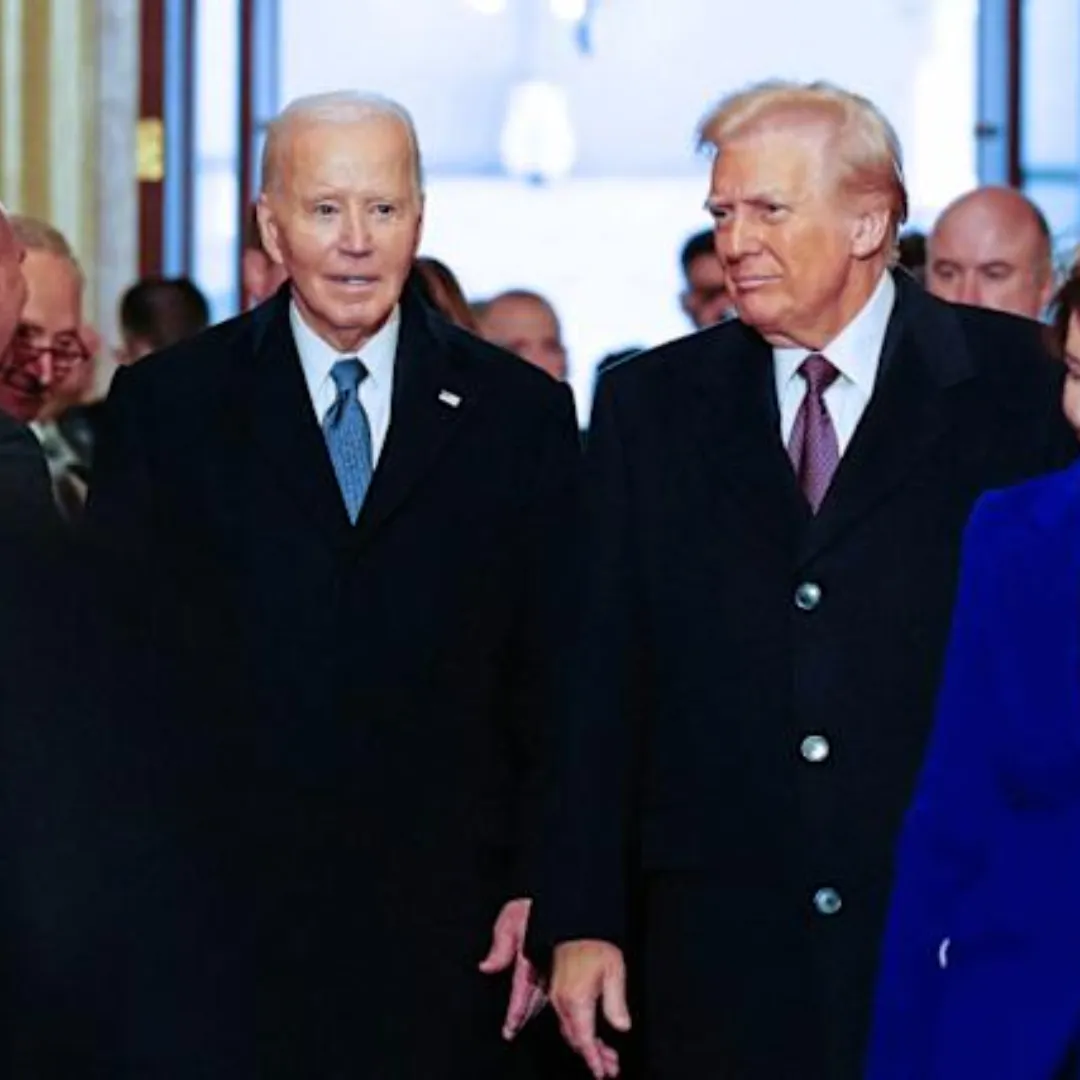
Senator Bernie Sanders (I-Vt.), a vocal critic of the Democratic Party’s leadership, has recently warned that the party has paid a "political price" for failing to sufficiently listen to the concerns of working-class Americans.
Sanders, who has been actively touring the country alongside Representative Alexandria Ocasio-Cortez (D-N.Y.), has been pushing back against the Trump administration and advocating for policies that center on economic justice, workers' rights, and universal healthcare.
In an interview with Robin Young of Here & Now, Sanders discussed how Democrats must refocus their efforts and put forward candidates who can channel the anger and frustrations of voters who feel neglected by the current political system.
He emphasized that much of the public’s disillusionment stems from policies supported by the Trump administration, which Sanders argues disproportionately benefit the wealthiest Americans while harming the working class.
“I think support for this right-wing agenda, which is not only about authoritarianism and oligarchy, it is about a proposal which will give over, if passed, over $1 trillion in tax breaks to the top 1% and allow for massive cuts to Medicaid, nutrition, housing, and other programs,” Sanders said.
“If you poll that, I would guess that 80-90% of the American people think that that is totally insane.” His comments reflect his longstanding opposition to policies that he believes exacerbate income inequality and leave millions of Americans struggling to get by.
Sanders also argued that, in many respects, the Trump administration is now on the defensive due to its economic policies, particularly the tariffs, which he warned will raise prices for everyday Americans. Sanders stressed the importance of having candidates who are willing to stand up for the working class, offering a stark contrast to the right-wing agenda supported by Trump and his allies.
“Now what we need are candidates and a political movement which stands clearly with the working class of this country,” he continued, calling for a shift in the priorities of the Democratic Party to address the economic issues that have been ignored for too long.

In response to concerns that the Democratic Party has moved too far to the left and needs to listen more to centrist voices, Sanders acknowledged that the party has made significant strides in certain areas. He pointed to the party’s leadership in advancing women’s rights, gay rights, and civil rights as areas of pride.
“They have led the way in the right for women to control their own body, something which is under attack right now, led the way for gay rights, led the way to fight against bigotry in general civil rights,” Sanders said. While he praised these accomplishments, he quickly pivoted to what he sees as the party’s greatest failure: neglecting the needs of the working class.
“Sixty percent of the American people are living paycheck to paycheck,” Sanders lamented. “In America today, one guy, Elon Musk, owns more wealth than the bottom 53% of American households. We’re the only major country on Earth that doesn’t guarantee healthcare to all people despite spending twice as much as most countries. Sixty thousand people a year die because they don’t get to a doctor on time.”
These stark statistics underscored his argument that the Democratic Party, despite its progressive victories, has fallen short when it comes to addressing the economic struggles of the vast majority of Americans.
According to Sanders, the growing concentration of wealth in the hands of a few is a direct consequence of the party’s failure to stand up for working people. He pointed out that in a nation as wealthy as the United States, it is unacceptable that such a large percentage of the population is struggling to make ends meet.
“What the Democratic Party has not done is paid attention to the working class, and they paid a political price for that,” he said, referencing the disillusionment that has driven many voters away from the party, leading them to support populist candidates like Donald Trump.
Sanders’ remarks come as the Democratic Party continues to grapple with how best to connect with disaffected voters. In recent elections, many working-class Americans, particularly in the Rust Belt and other traditionally Democratic strongholds, turned to Trump, attracted by his populist rhetoric and promises to "drain the swamp" and put America first.
Sanders has consistently warned that unless the Democratic Party shifts its focus back to the economic needs of working families, it will continue to lose ground to candidates who promise to break the mold of the political establishment.

The challenge, according to Sanders, is not just about pushing back against Trump’s policies but also about fundamentally changing the way politics works in Washington. He believes that the political establishment, including both major parties, has become too beholden to the interests of the wealthy and powerful, leaving ordinary working people behind.
Sanders’ call for a political movement that stands with the working class is a rallying cry for those who feel abandoned by both parties and who are looking for a leader who will fight for their interests above those of the elite.
Sanders’ criticism of the Democratic Party is not a new one. Throughout his political career, he has consistently advocated for policies that challenge the status quo, including Medicare for All, free college education, and a living wage.
His messages often resonate with younger voters and working-class Americans who feel that the traditional political system does not serve their needs. But Sanders has also faced criticism from some within his own party who argue that his progressive positions alienate centrist voters and make it harder to win general elections.
In recent months, there has been increased debate within the Democratic Party about its direction, especially as the 2024 election approaches. Some Democrats fear that the party has moved too far left and that the progressive agenda championed by figures like Sanders and Representative Alexandria Ocasio-Cortez could alienate moderate voters.
Others, however, believe that the party must embrace bold progressive policies to address the economic inequality and systemic injustice that have defined much of American history.
Sanders’ remarks have reinvigorated this debate, calling for a political movement that addresses the real concerns of working people while also challenging the entrenched power of corporations and the ultra-wealthy. His comments also come amid ongoing political turbulence, with rising tensions between the White House and Congress over economic policy, healthcare, and social justice issues.
Sanders’ voice in this debate is seen as a critical one, particularly as the Democratic Party seeks to rebuild its base and present a unified front ahead of the next presidential election.

For Sanders, the key to the future of the Democratic Party lies in reconnecting with the working class. He argues that the party has lost its way by prioritizing the concerns of the elite and failing to address the economic struggles faced by millions of Americans.
In his view, the only way to win back the working-class vote is to offer bold solutions that directly address issues like healthcare, wages, and economic inequality. “If we do not do that, we will continue to pay the political price for our failure to put the needs of working people first,” Sanders warned.
As Sanders continues to make his case for progressive change, his influence within the Democratic Party remains significant. Whether his ideas will take root within the broader party remains to be seen, but his challenge to the status quo is clear.
For Sanders, the fight for a better future is about more than just elections—it’s about building a movement that genuinely works for the people, not the powerful. Whether the Democratic Party can rise to that challenge will determine not only its future but also the future of the country as a whole.
In the coming months, as the 2024 election season heats up, Sanders and other progressives will likely continue to push for a party that listens to the concerns of the working class. The outcome of this ideological battle will shape the direction of the party and, perhaps, the nation’s political future.

For now, Sanders remains a staunch advocate for policies that prioritize people over profits, with the hope that the Democratic Party will return to its roots and fight for the many, not just the few.



